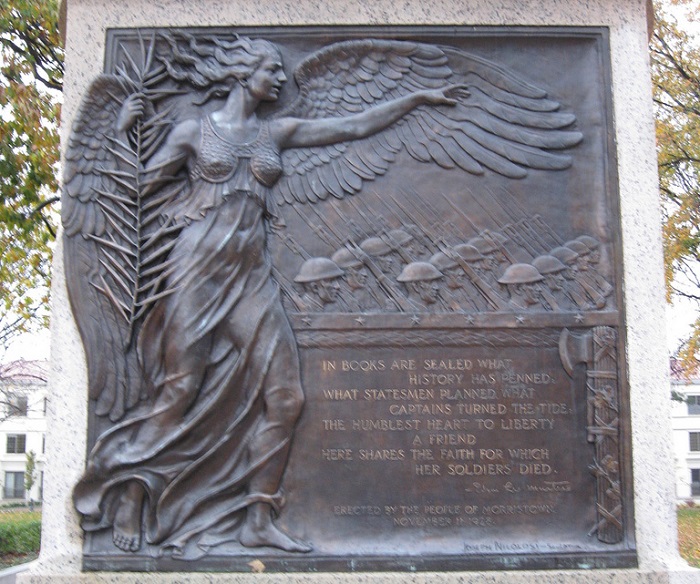
December 14, 2015; Healthcare Finance
Financially strapped cities and municipalities across the country are increasingly asking big nonprofits to pay into the local tax base and this has led in some cases to a challenging of the tax-exempt status of some nonprofit organizations. In New Jersey, a state that is still recovering from the recession, hospitals and universities may represent the most obvious and biggest revenue opportunities for localities where those facilities dominate the landscape.
NPQ has been following the impact of the decision of New Jersey tax court judge Vito Bianco that nonprofit Morristown Memorial Hospital pay property taxes from 2006 to 2014. Judge Bianco ruled that the hospital’s financial relationships were so entangled with for-profit subsidiaries and physician partnerships that its property-tax-exempt status could not be supported. He also suggested that the state legislature resolve the issue on a more systemic basis by defining and clarifying the criteria for tax-exempt status.
The decision has cast a cloud of uncertainty around placed all of New Jersey’s 63 nonprofit hospitals. As a result, the New Jersey Hospital Association (NJHA) has created a task force to examine the implications for other hospitals around the state. The association has been working with legislators on an equitable proposal. “The bottom line is, we want to have as much information as possible so we can avoid unintended consequences. We do very much want to work collaboratively with the Senate President and other leaders on this issue,” said NJHA’s president and CEO Betsy Ryan.
State senators Robert Singer, Steve Sweeney, and Joseph Vitale have recently introduced the Community Service Contribution Bill, which would require nonprofit hospitals to pay new municipal fees called “Community Service Contributions.” The bill, if passed, will affect all New Jersey nonprofit hospitals.
The bill’s champions say that it’s an attempt to “strike a balance” between compensating municipalities for providing essential services such as police and fire departments and protecting the survival of nonprofit hospitals threatened with losing their tax exemption. Under the new legislation, nonprofit hospitals will be required to pay $2.50 per day for each hospital bed in the prior year, as well as $750 per day for each “Satellite Emergency Care” facility.
Senator Singer explains the complexity and implications of the Morristown decision that the bill’s co-signers considered in order to be fair to hospitals:
Sign up for our free newsletters
Subscribe to NPQ's newsletters to have our top stories delivered directly to your inbox.
By signing up, you agree to our privacy policy and terms of use, and to receive messages from NPQ and our partners.
Hospitals were, based on that decision, losing their nonprofit status and being taxed as for-profit entities. You’re dealing with an industry that is subsidized through the state, through charity care, over a hundred million dollars a year, and you turn around and create a tax situation where the money given to them for charity would end up going just to pay taxes. It certainly isn’t the intent of the state or the intent of the people of the state to cripple or put hospitals out of business so what we try to do is find a compromise.
Senator Vitale added, “The fact that the payment formula sets a reasonable payment schedule that is predictable and consistent is a benefit for the hospitals and the municipalities, eliminating uncertainty and unpredictability. The acute care hospitals provide a wide range of medical treatment and health care for a growing number of people. We recognize and respect their value to their home communities and the entire state.”
Ryan says that it’s premature for the NJHA to take an official position. “The devil is always in the details,” she said. “The bill does have a provision for what I would call financially challenged hospitals to pursue an opt-out if the tax would put them over the edge if you will. So that’s a positive, but it’s too soon to tell.”
New Jersey nonprofit hospitals assert they provided $2.4 billion in community benefit in 2013, representing 13.4 percent of their expense and includes $1 billion in financial assistance to senior citizens, the needy, and the uninsured. The state’s average percent of community benefits is higher than the national average of 12.3 percent. Nevertheless, “community benefit” has too many times become a matter of interpretation because of undefined or unclear criteria for hospital contributions. The proposed legislation calls for a commission to study the system and seek improvements.
The fate of the bill is likely to be decided on December 17th by a vote in both houses. If ratified, the bill will cross Governor Chris Christie’s desk the same day. Some cities and municipalities oppose the bill, contending that it will preempt future attempts to secure more revenue.
Universities are also affected by the growing threat to their tax-exempt status. In a related story, Judge Bianco also notably ruled on November 5th that it was incumbent on Princeton University to prove its property-tax-exempt status rather than for those who brought suit against it to prove that it is not. The New Jersey Superior Court Appellate Division is currently considering Princeton’s motion to appeal the ruling. On December 7, 2015, the New Jersey Center for Non-Profits filed an amicus brief in support of Princeton’s appeal.
Particularly troubling about this case is that the complaint was filed not by a municipality but by a group of citizens challenging the municipal tax assessor and advocating for the university’s tax exemption in its entirety. Should the previous decision be upheld, what would stop other unofficial groups from following suit?—G. Meredith Betz













